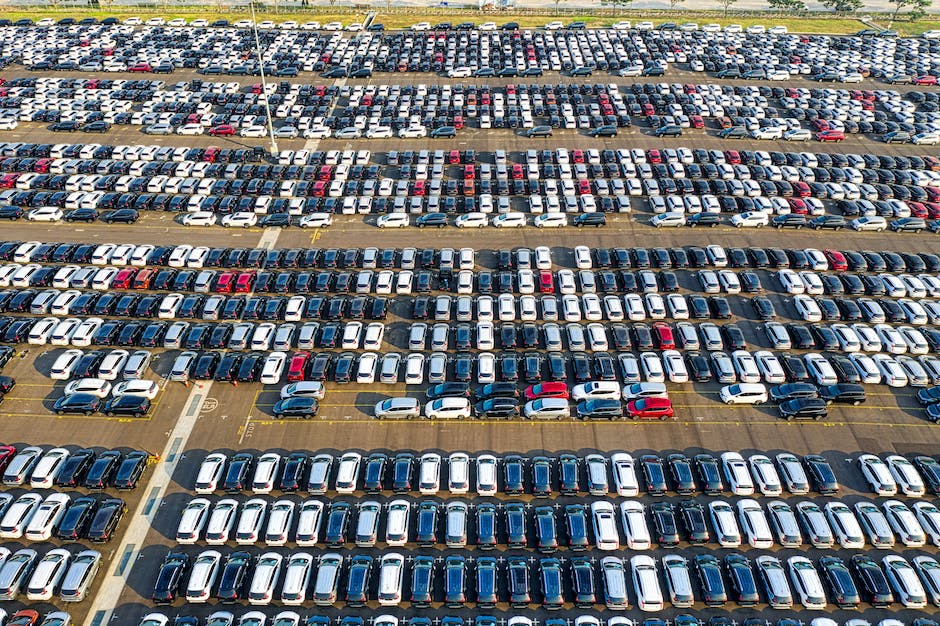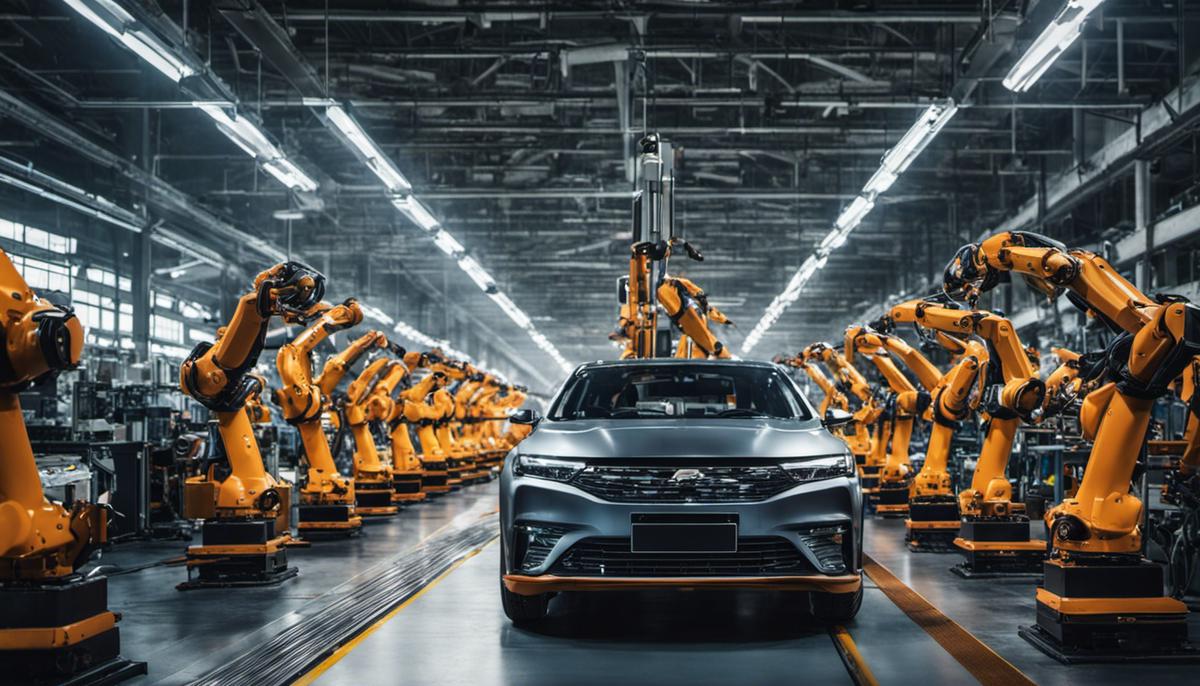The Role of AI in Automotive Quality Control
The advent of Artificial Intelligence (AI) technology has significantly revolutionized various sectors, with the automotive industry being no exception. From the conceptualization and design stages to the manufacturing and quality control processes, AI has integrated seamlessly into the life-cycle of an automotive product. As the technology continues to evolve, it is transforming the fundamental operations of the auto industry, making procedures more efficient, accelerating production rates, and significantly enhancing product quality. This essay delves into the core aspects of AI technology’s impact on quality control within the automotive industry, the prevalent implementations and their outcomes, alongside an exploration into the promising future awaiting this intriguing juncture of AI and automotive quality control.
Overview of AI Technology in Auto Industry
AI Technologies in the Auto Industry
Artificial Intelligence (AI) has become a significant player in the automotive industry. AI is technology that mimics human intelligence to find patterns, predict outcomes or make decisions. It involves the study and design of algorithms that can learn from and perform tasks that would normally require humans.
AI technologies are revolutionizing the industry in a variety of ways, fostering improved vehicle safety, efficient manufacturing processes, and enhanced overall performance. Amongst the most prominent AI technologies involved are Machine Learning, Deep Learning and Computer Vision.
Machine Learning and Deep Learning in Automotive Quality Control
Machine Learning, a subset of AI, enables a machine to learn from historical data without explicit programming. Advanced forms of Machine Learning involve Deep Learning, which uses artificial neural networks with several levels of layers to extract higher-level features from raw inputs.
In quality control, these technologies are paramount. For example, Machine Learning algorithms can be trained on vast data sets of manufacturing flaws and defects, allowing them to detect anomalies with high accuracy. Deep Learning, on the other hand, analyze thousands of images of automotive parts to identify even the smallest imperfection that can compromise the quality and safety of vehicles. Manufacturers can analyze images of a part or product, compare it to an ideal model, and identify any deviations or defects.
Computer Vision and Quality Control
Computer Vision, another AI application, is transforming the automotive industry by providing machines the ability to ‘see’ and interpret their surroundings. For quality control, computer vision systems capture and analyze images throughout the production process, allowing for real-time quality inspection. With sensors and cameras, these systems detect defects, measure parts, and ascertain the correctness of component placement in vehicles.
Benefits of AI in Automotive Quality Control
AI technologies offer numerous benefits to the automotive industry in terms of quality control. They improve efficiency by speeding up the inspection process, eliminating the need for time-consuming manual inspections. Accuracy is also significantly increased, reducing the chance of human error. AI increases productivity by identifying and correcting errors in real-time, thus saving costs associated with recalls or repairs. Furthermore, AI contributes to the safety of vehicles by ensuring each product meets the highest quality standards before reaching the consumers.
Challenges in Implementing AI in Automotive Quality Control
However, implementation of AI technologies in automotive quality control also pose challenges. High upfront costs for hardware, software, and training can be a barrier for some businesses. Moreover, fabricating large and diverse enough data sets for Machine Learning models to train on can be difficult. Additionally, the constantly evolving nature of AI technology requires constant updates and maintenance to algorithms and systems. Furthermore, cultural resistance within the industry may exist due to concerns about job loss resulting from automation.
Though the automotive industry faces numerous challenges, the transformative power of AI within the scope of quality control cannot be overlooked. As the advancement and affordability of AI technologies gain momentum, their impact on the quality, efficiency, and safety parameters of vehicles continues to scale new heights.

AI and Quality Assurance Measures in Auto Manufacturing
Quality Control Revolution in Auto Manufacturing Through AI Technologies
Artificial Intelligence (AI) technologies have become a pivotal part of the quality control landscape in the automotive industry, spearheading a shift from the traditional reliance on human inspection and manual checks. By integrating AI into their operational processes, businesses are witnessing a considerable enhancement in their quality assurance systems.
AI-Powered Automated Inspections
AI-powered automated inspections are transforming the way quality control is carried out in automotive manufacturing. Automated inspections use AI technologies like machine vision and deep learning, which can detect faults and irregularities in product components more accurately than human inspectors. These technologies boast the ability to identify even the most minute defects that human eyes might miss, making them more efficient and reliable.
Machine vision systems, for instance, can collect detailed data from each inspection and provide accurate defect identification within seconds. These systems use cameras and image processing software to perform visual inspections at various stages of the manufacturing process. From inspecting raw materials to checking the completion of the final product, automated inspections ensure non-stop, 24/7 quality assurance.
AI and Predictive Maintenance
Beyond automated inspections, AI technologies are also employed in predictive maintenance. Traditional maintenance schedules rely on specified time frames or wait until a machine shows signs of failure. Predictive maintenance, however, employs AI algorithms to analyze data collected from numerous sensors installed on the equipment.
This data includes variables such as vibration, temperature, and pressure. AI algorithms analyze this data in real-time and can accurately predict when a machine component is likely to fail or requires servicing. The immediate benefit of this proactive approach is the reduction in unexpected downtime, thus improving manufacturing efficiency, reducing costs, and enhancing the overall quality of the production process.
AI and Data Analysis
AI’s ability to process vast amounts of data quickly and accurately is another way it’s changing the game in quality control. In the automotive industry, each manufacturing process produces large amounts of data. By using machine learning and deep learning algorithms, factories can effectively analyze this data to identify patterns, trends, and potential problems that might affect the quality of the final product.
For instance, if a particular component consistently fails quality checks, AI can identify the trend and alert managers to take corrective action. This could involve reconfiguring machinery, retraining staff, or investigating suppliers. This kind of predictive quality control helps prevent problems from escalating and reduces the likelihood of producing faulty products.
Conclusion
Artificial Intelligence (AI) technology brings a significant transformation in the automotive manufacturing arena; heightening speed, accuracy, and predictive capabilities within the quality control processes. Quite clearly, these technologies have moved from being an optional aid to an indispensable tool. Implementing AI in quality control not only amplifies the quality of the final product but also boosts the whole production efficiency, minimizes costs, and cultivates greater customer satisfaction. As AI technology is continually growing and advancing, its prevalence in shaping automotive quality control is set to become even more destined.

Case Studies of AI in Automotive Quality Control
General Motors utilizing AI for Enhanced Automotive Quality Control
Emphasizing their commitment to manufacture high-quality cars, General Motors (GM) skillfully wove AI into their quality control protocols. In a crucial partnership with Covisint and IBM Watson, AI played an instrumental role in establishing a component tracking system spanning various GM facilities. The production data of these car components were subjected to AI scrutiny, flagging any inconsistencies that might signal a quality issue. This forward-thinking approach expedited the detection and resolution of potential problems, thus reducing recall incidents and upgrading product quality significantly.
Ford’s AI-driven approach to Quality Control
Another automotive company, Ford, has made impressive strides in AI utilization for quality control. Using AI and predictive analytics, Ford analyzes delivery methods and supply chain logistics to identify optimization areas. This proactive identification of potential snags and delays allows the company to ensure consistent product quality.
Ford also used AI-driven robotics for car assembly, constantly monitoring cars’ quality on the production line. As a result, the integration of AI has facilitated higher efficiency, precision, and consistency in production, leading to a significant increase in overall vehicle quality.
Toyota’s AI-Based Quality Control Initiatives
Toyota, the Japanese auto giant, has leveraged AI to improve its vehicles’ quality and safety standards. The car manufacturer uses AI technologies powered by deep learning algorithms to develop high-definition maps for autonomous driving. These maps offer real-time traffic information and road conditions, thereby significantly improving the overall safety and quality standards.
Further, Toyota uses AI technology in its assembly lines to identify malfunctioning machines or parts proactively. In doing so, the company saves on valuable production time, reduces potential safety issues from malfunctioning equipment, and ensures the consistent quality of its vehicles.
Besides, by utilizing AI in car function testing, Toyota expedites the testing process. Machine learning algorithms compare test data to a model created from previously collected data, assisting testers in identifying abnormalities faster. The use of AI, therefore, reduces the testing time, allowing Toyota to maintain quality while increasing efficiency.
AI’s Impact on Automotive Quality Control at Bosch
Leading the pack when it comes to technology integration, Bosch employs AI systems across its numerous products, including automotive components. Bosch’s AI technology has dramatically reshaped the quality control process during the production of these complex components. The company leverages AI-powered cameras to scan for any signs of defects, significantly reducing errors and drastically cutting down costs associated with product recalls and modifications. The adoption of AI within quality control processes has led to marked improvements in both the consistency of product quality and the efficiency of production at Bosch.

Future Scope of AI in Automotive Quality Control
Emerging AI Technologies in Automotive Quality Control
Today, AI has emerged as a crucial factor driving efficiency and quality in the automotive manufacturing process. Auto manufacturers are incorporating AI tools like machine learning algorithms, automated inspection systems, and predictive modeling technologies to reinforce their commitment to producing superior vehicles. As such, AI’s potential for defect detection extends beyond the capacity of the human eye, enabling more thorough visual inspections. Deploying machine learning algorithms helps manufacturers recognize patterns of defects, enabling prediction and prevention of future faults, thereby driving substantial improvements in the overall product quality.
Predictions and Trends for AI in Quality Control
The future promises an increased implementation of AI technology in the automotive industry to enhance quality control. The emergence of driverless cars has escalated the need for more refined and reliable AI systems that can detect and correct faults automatically.
One notable trend is the industry’s shift towards deep learning methodologies. These sophisticated algorithms can deliver accurate defect detection by continual learning from large datasets. For example, deep learning could help identify microscopic cracks and flaws in materials used in car production, which were previously undetectable with traditional methodologies.
Another trend is the rise of collaborative robots or “cobots,” which are designed to interact with humans in shared workspaces. In quality control, cobots can be integrated to run most of the inspections, reducing the chances of human error and streamlining the process.
Potential New AI Technologies
New AI technologies on the horizon could revolutionize quality controls in the automotive industry. One such technology under exploration is prescriptive analytics. This form of AI analytics utilizes machine learning to suggest several different possible actions to take, enhancing the decision-making process to prevent quality issues in advance rather than simply predicting them.
Manufacturers are also exploring AI’s potential in augmenting nondestructive testing (NDT), a common quality control method in the auto industry. Interestingly, AI technology could help automate these tests, increasing their speed and accuracy.
AEye, a LiDAR system developer, is developing a new kind of intelligent data collection that mimics the human eye, known as iDAR. iDAR could have significant implications for quality control, potentially transforming automotive inspections by offering higher resolution images and faster processing times.
Impacts of AI on Quality Assurance in Auto Manufacturing
The integration of AI technologies into auto manufacturing’s quality assurance systems offers numerous potential benefits. Firstly, the automation of inspections by AI will dramatically reduce manufacturing time and costs while improving reliability. Inspections that were previously manually intensive can be carried out swiftly and precisely by AI systems.
Additionally, AI technology’s predictive capabilities have the potential to significantly reduce waste and increase efficiency within the auto manufacturing process. By identifying and addressing defects during production, manufacturers can avoid costly reworks or recalls and optimize their operations.
Finally, AI can bring about substantial improvements in safety measures within the auto industry. By ensuring that each vehicle component meets the necessary quality standards, AI technologies can help reduce the risk of vehicle malfunctions and related safety incidents. The development and implementation of modern AI technologies could be a game-changer in safety and quality assurance for automotive manufacturing.

The utilization of Artificial Intelligence in the realm of automotive quality control has only begun to scratch the surface of its potential. As we move forward, the AI-augmented workforce, predictive analytics, and automated inspection systems are expected to become not only prevalent but essential to maintaining the competitive edge in the market. As these technologies continue to evolve, they will inevitably usher in an era of higher efficiency, safety, and quality in automotive production. By embracing this transition, we stand on the threshold of an exciting future in automotive manufacturing that promises to be shaped by innovative AI technologies. Thus, an ongoing investment and focus into AI technologies for quality control indeed hold the key to the next revolution in the automotive industry.
